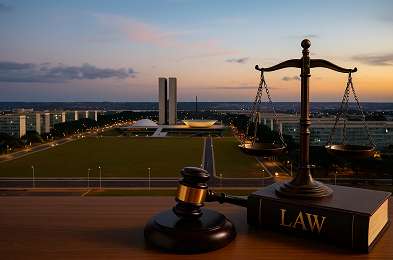Rio de Janeiro
Av. Presidente Wilson, 231 / Salão 902 Parte - Centro
CEP 20030-021 - Rio de Janeiro - RJ
+55 21 3942-1026

Brazil's regulatory landscape is shaped by a complex matrix of federal, state, and municipal authorities. Key federal agencies include ANVISA for health products, CVM for securities, ANATEL for telecommunications, ANP for oil and gas, BACEN for banking, and CADE for antitrust. A regulatory lawyer interprets overlapping mandates, coordinates filings, and maintains compliance across this multifaceted ecosystem.
A regulatory lawyer acts as a strategic advisor, obtaining licenses, drafting compliance programs, conducting internal audits, and representing clients in administrative proceedings. The lawyer liaises with agency officials to clarify requirements, accelerate approvals, and mitigate enforcement risk.
Launching operations often requires environmental licenses, sanitary permits, import authorizations, or spectrum allocations. Counsel prepares technical dossiers, manages public consultations, and tracks timeline commitments to keep projects on schedule.
Robust compliance frameworks integrate policies, training, monitoring, and reporting. Lawyers design risk matrices, develop standard operating procedures, and establish whistleblower channels that align with the Clean Company Act and ISO 37301.
Engaging regulators during rulemaking influences policy outcomes. Regulatory professionals draft position papers, participate in public hearings, and build coalitions to ethically advance client interests.
Pharmaceutical and medical device companies navigate ANVISA’s Good Manufacturing Practices, clinical trial approvals, and labeling rules. Lawyers oversee dossier compilation, GMP inspections, and post-market vigilance obligations.
Banking fintech and payment institutions must comply with Open Finance cybersecurity resolutions and anti-money laundering directives. Counsel submits license applications, drafts governance charters, and aligns cross-border data flows with LGPD.
Oil, gas, and renewable operators engage with ANP, IBAMA, and state environmental agencies for exploration permits, production sharing agreements, and environmental impact assessments. Regulatory counsel structures local content obligations and negotiates unitization terms.
The General Data Protection Law mandates a legal basis for processing breach notifications and data impact assessments. Lawyers create privacy governance architectures, coordinate with the National Data Protection Authority, and align contracts with cross-border transfer clauses.
Transactions that meet CADE thresholds require pre-merger notification. Regulatory lawyers conduct market definition analyses, prepare economic reports, and negotiate remedies to secure clearance.
Brazil’s Consumer Defense Code imposes strict liability and transparency duties for marketing claims. Counsel vets advertising materials, influencer contracts, and recall procedures to avert penalties.
Projects impacting flora, fauna, or indigenous lands demand rigorous environmental licensing across three stages: preliminary installation, operation, and litigation. Lawyers coordinate impact studies, public hearings, and offset negotiations to secure project viability.
When agencies issue fines or suspend operations, regulatory attorneys file defenses, administrative appeals, and negotiate settlement agreements to minimize business disruption.
M&A and financing deals require verification of license compliance history and pending investigations. Counsel identifies red flags and structures indemnities or escrows to allocate regulatory risk.
Compliance tasks can be automated through RegTech solutions, reducing manual effort and error. Lawyers evaluate tools for reporting, monitoring, and predictive analytics and integrate them into compliance roadmaps.
ISO IEC standards, WTO agreements, and OECD guidelines influence domestic rules. Regulatory lawyers benchmark local processes against global norms, ensuring export readiness and investor confidence.
Suppliers to government entities navigate the Bidding Law and anticorruption vetting. Counsel drafts bid proposals, reviews qualification documents, and manages appeals before audit courts.
Product recalls, data breaches, and environmental spills demand rapid response. Regulatory counsel activates incident teams, prepares regulator notifications, and crafts media statements.
Embedding compliance into corporate culture requires leadership commitment, performance indicators, and regular training. Lawyers draft codes of ethics, evaluate effectiveness, and report results to audit committees.
From accelerating market entry to avoiding costly fines, specialized regulatory counsel delivers strategic clarity, operational continuity, and reputational resilience.
For tailored legal guidance, please email: [email protected]
 Mr. Alessandro Jacob speaking about Brazilian Law on "International Bar Association" conference
Mr. Alessandro Jacob speaking about Brazilian Law on "International Bar Association" conference Av. Presidente Wilson, 231 / Salão 902 Parte - Centro
CEP 20030-021 - Rio de Janeiro - RJ
+55 21 3942-1026
Travessa Dona Paula, 13 - Higienópolis
CEP -01239-050 - São Paulo - SP
+ 55 11 3280-2197